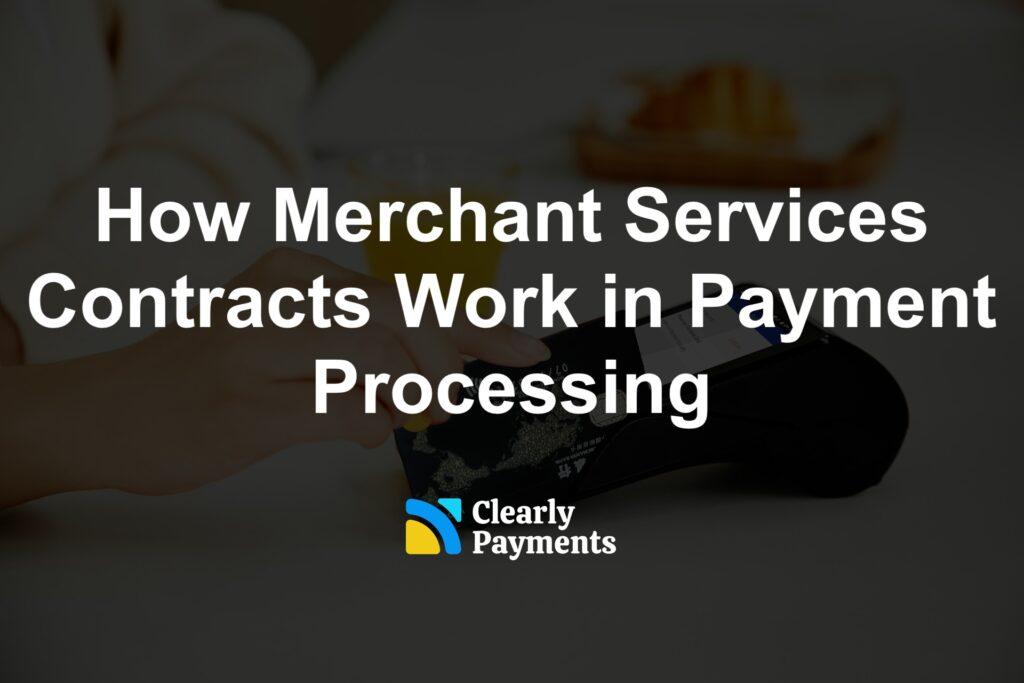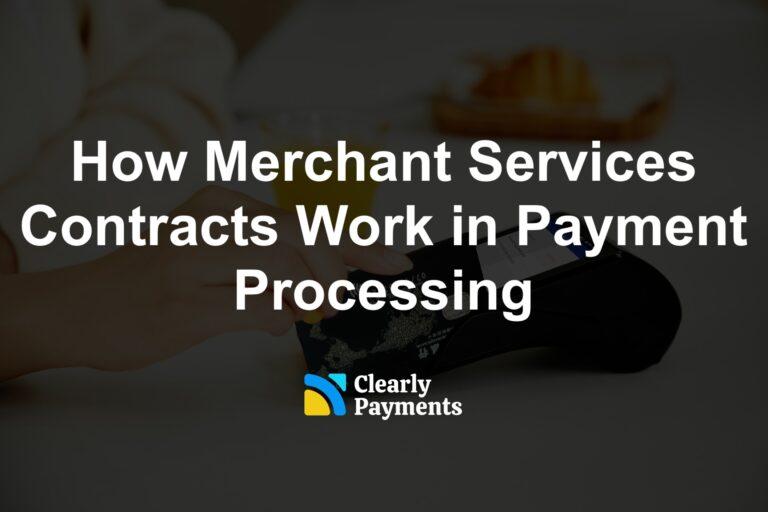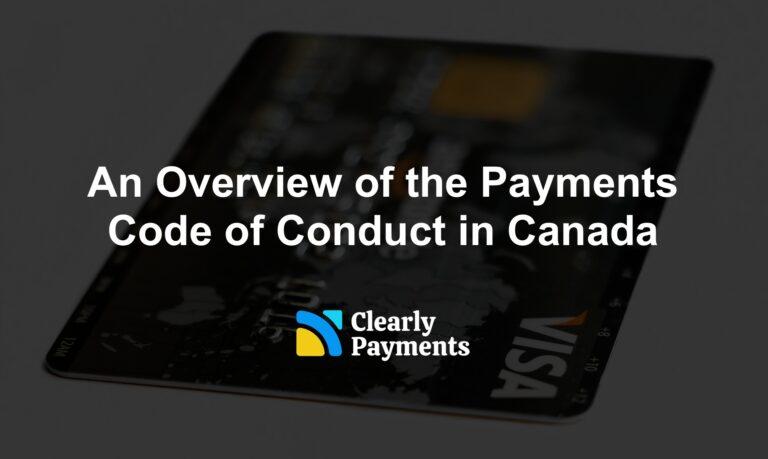Merchant services contracts for payment processing are complex. They are long and convoluted. Contracts are not standardized and there is no strict regulation on payment processing pricing so it is very difficult to compare payment processing offers. This is why it is so important to choose the right payments provider.
This guide will help merchants understand these merchants services contracts, what to watch out for, and how pricing works.
Key Components of Merchant Services Contracts
Pricing Structure and Fees: This includes the transaction fees, monthly fees, setup fees, and any other charges associated with processing payments. Typically, transaction fees are either a flat rate per transaction or a percentage of the transaction amount, sometimes combined with a smaller fixed fee. Frequently, the fees will be in a part of the contract called “Schedule A”. Read this full article on payment processing pricing.
Types of Payments Accepted: Ensure the contract specifies which credit card brands and other payment methods are accepted. This will align with your customer’s payment preferences and ensure you can cater to a broad audience.
Funding and Settlement Period: This section details when the funds from transactions will be deposited into your bank account. This period can vary from one to several days after the transaction. Also ensure you review any fees for settlement.
Contract Term and Renewal: Pay attention to the duration of the contract and the terms of renewal. Some contracts automatically renew for another term unless the merchant cancels in writing within a specified period.
Security and Compliance: The contract should detail the payment processor’s compliance with security standards, such as PCI DSS (Payment Card Industry Data Security Standard), and outline your responsibilities in maintaining security.
Things to Look Out for in Payment Contracts
It’s equally important to be aware of potential pitfalls in payment processing contracts. Here are several things to watch out for.
- Early Termination Fees: Some contracts include penalties for early termination. If you consider switching providers, these fees can be substantial, so it’s important to understand the conditions under which you can terminate the contract without penalty. Sometimes early termination fees can be hundreds to thousands of dollars.
- Hidden Fees: Look for any hidden fees or charges that might not be explicitly stated in the main sections of the contract. These could include monthly minimums, PCI compliance fees, or fees for customer support services.
Exclusivity Clauses: Some contracts may restrict you from using other payment processing services. Such clauses can limit your flexibility to adapt to new payment technologies or better rates from competitors. Try to get rid of any exclusivity.
Liability and Chargeback Policies: Understand your liability for chargebacks. This section should clearly define the process for handling disputed transactions and the associated fees. The contract should clearly define the process for handling disputed transactions and the associated fees.
Customer Service and Support: Reliable customer support is crucial, especially when dealing with payment disruptions. Ensure the contract specifies the level of support provided, including availability hours and response times.
Types of Fees in Merchant Contracts
Merchant contract fees vary widely depending on the payment processor, the type of business, transaction volumes, and other factors. Here is an overview of the types of fees:
Transaction Fees: These are charged each time a transaction is processed. They can be a flat fee per transaction, a percentage of the transaction amount, or a combination of both. For example, a typical transaction fee might be 2.9% + $0.30 per transaction. TCM has much lower fees.
Monthly Fees: Some payment processors charge a monthly fee for using their services, which can cover customer support, account management, and access to additional features like detailed reporting tools.
Setup Fees: Initial setup fees may be charged to cover the cost of creating and configuring a merchant account.
PCI Compliance Fees: To comply with the Payment Card Industry Data Security Standard (PCI DSS), processors might charge a fee. This fee ensures that the merchant’s payment system is secure and customer data is protected.
Chargeback Fees: When a customer disputes a transaction and it results in a chargeback, merchants are often charged a fee. This can vary but typically ranges from $15 to $100 per chargeback.
Early Termination Fees: If a merchant decides to end the contract before the agreed-upon term, they may incur an early termination fee. This compensates the processor for the anticipated revenue lost due to the early termination. This can range from $100 to $5000. Get these removed.
Minimum Monthly Processing Fee: Some contracts require a minimum amount of transaction fees per month. If the merchant does not reach this minimum, they may be charged the difference.
How Much Are Fees in Merchant Services
Understanding the types of fees is one thing, but knowing how much they can cost is important for negotiations.
- Transaction Fees: Generally range from 2% to 3.5% depending on the type of card used and whether the transaction is processed in-person or online.
- Monthly Fees: Can range from $10 to $50 or more, depending on the services provided.
- Setup Fees: These can vary significantly; some processors do not charge any setup fees, while others may charge several hundred dollars.
- PCI Compliance Fees: Typically, these fees can range from $100 to $300 annually, though some processors include this in the monthly fee.
- Chargeback Fees: Generally between $20 and $100 per chargeback.




